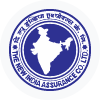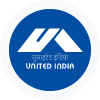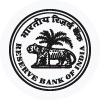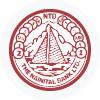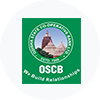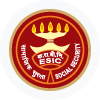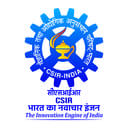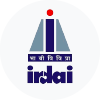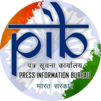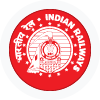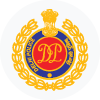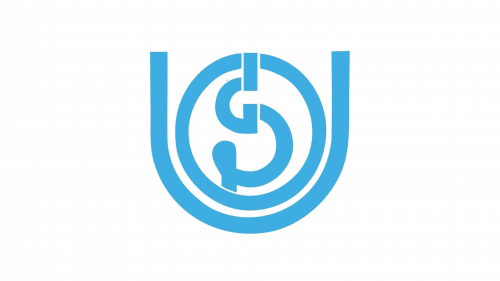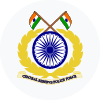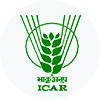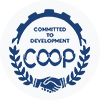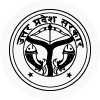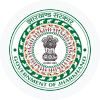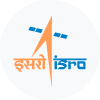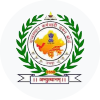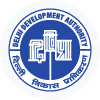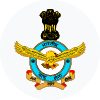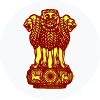GATE Mechanical Engineering 2024
Graduate Aptitude Test in Engineering (GATE) is a national examination conducted jointly by the Indian Institute of Science (IISc), Bangalore, and the seven Indian Institutes of Technology (at Bombay, Delhi, Guwahati, Kanpur, Kharagpur, Madras, and Roorkee) on behalf of the National Coordination Board (NCB)-GATE, Department of Higher Education, Ministry of Education (MoE), Government of India.
What is GATE Mechanical Engineering Exam?
GATE Mechanical Engineering is an entrance exam for admission to postgraduate programs in engineering and technology in India. It tests the candidates' knowledge and skills in various topics related to mechanical engineering, such as thermodynamics, fluid mechanics, manufacturing, design, and engineering mathematics. GATE Mechanical Engineering is conducted by the Indian Institute of Technology (IIT) and the Indian Institute of Science (IISc) every year in February. The exam consists of 65 questions of multiple-choice and numerical answer types, with a total duration of three hours. The exam is scored out of 100 marks, with negative marking for incorrect answers. GATE Mechanical Engineering is a highly competitive exam that requires thorough preparation and practice.
Check the GATE Mechanical Engineering Overview, Eligibility Criteria, Salary, Exam Pattern, and Syllabus
If you are planning to take the GATE Mechanical Engineering exam, you might be wondering what are the benefits of clearing it. Well, there are many prospects for GATE-qualified candidates, such as:
- - Admission to M.Tech or Ph.D. programs in prestigious institutes like IITs, NITs, IISc, etc.
- - Scholarship or stipend from MHRD or other funding agencies for pursuing higher studies.
- - Eligibility for some PSU jobs that require a GATE score as a criterion.
- - Enhancement of your resume and skills for better career opportunities in the future.
So, if you have a passion for engineering and research, the GATE exam can open many doors for you. You only need a good preparation strategy and hard work to ace it.
GATE Mechanical Engineering Overview
| Particulars | Details |
| Full Form | Graduate Aptitude Test in Engineering |
| Post | Mechanical Engineering |
| Managing By | Indian Institute of Technology Kharagpur |
| Exam Level | National |
| Language | English |
| Mode of Application | Online |
| Application Fee (General) | 1500 |
| Mode of Exam | Online |
| Mode of Question Papers | MSQ/MCQ/NAT |
| Participating Colleges | 1072 |
| GATE Mechanical Exam Duration | 3 Hours |
| No. Of Question In Exam | 65 |
| Topic-Wise Weightage | - General Aptitude – 15%
- Mathematics – 15%
- Mechanical Engineering – 70%
|
| GATE Mechanical Marking Scheme | Questions carry 1 mark and 2 marks |
| No.Of Sections | - Section 1 – General Aptitude
- Section 2 – Mathematics and Mechanical Engineering
|
| Negative Marking | - For a wrong answer chosen in an MCQ, there will be a negative marking. For 1-mark MCQ, 1/3 mark will be deducted for a wrong answer. Likewise, for a 2-mark MCQ, the 2/3 mark will be deducted for a wrong answer.
- There is no negative marking for wrong answer(s) to MSQ and NAT questions.
|
| Official Website | gate.iitk.ac.in |
GATE Mechanical Engineering 2024 Important Dates
| Events | Dates |
| Particulars | 2023 | 2024 |
| GATE Online Application Process Opens | - 7th October 2022 (without late fee)
- 16th October 2022 (with late fee)
| Will be Updated |
| Closing Date of REGULAR online Registration/application process | Sep 2023 | Will be Updated |
| Admit card Date | 9th January 2023 | Will be Updated |
| GATE Mechanical Engineering Exam Date | 4th February 2023 | Will be Updated |
| Announcement of Result | 16th March 2023 | Will be Updated |
GATE Mechanical Engineering Eligibility Criteria 2024 (Expected)
Eligibility Criteria are really an important factor that every candidate must check before applying for the GATE ME exam. GATE has prescribed educational qualification eligibility for all the streams of the exam. Read the information given below to know about the eligibility for GATE Mechanical Engineering 2024 exam.
GATE Mechanical Age Criteria for GATE Exam
There is no age limit for the GATE Exam; all the candidates can apply for this post, no matter how old they are; just their graduation should be complete.
Nationality For GATE Exam
The applicant must be an Indian citizen. Foreign candidates can also apply for the exam, but they must satisfy the eligibility criteria required for foreign nationals; the SC/ST/PWD categories are not applicable.
Educational Qualification for GATE Exam
| Degree/Program | Qualifying Degree/Examination | Description of Eligible Candidates |
| B.E. / B.Tech. / B.Pharm. | Bachelor's degree in Engineering / Technology (4 years after 10+2 or 3 years after B.Sc. / Diploma in Engineering / Technology) | Currently in the 3rd year or higher or already completed |
| B. Arch. | Bachelor's degree of Architecture (5-year course) / Naval Architecture (4-year course) / Planning (4-year course) | Currently in the 3rd year or higher or already completed |
| B.Sc. (Research) / B.S. | Bachelor's degree in Science (PostDiploma/4 years after 10+2) | Currently in the 3rd year or higher or already completed |
| Pharm. D. (after 10+2) | 6 years degree program, consisting of internship or residency training, during third year onwards | Currently in the 3rd/4th/5th/6th year or already completed |
| M.B.B.S. / B.D.S. / B.V.Sc. | Degree holders of M.B.B.S. / B.D.S. / B.V.Sc. and those who are in the 5th/6th/7th semester or higher semester of such program | 5th/6th/7th or higher semester or already completed |
| M. Sc. / M.A. / MCA or equivalent | Master's degree in any branch of Arts / Science / Mathematics / Statistics / Computer Applications or equivalent | Currently in the first year or higher or already Completed |
| Int. M.E. / M.Tech. (Post-B.Sc.) | Post-B.Sc Integrated Master's degree programs in Engineering/ Technology (4-year program) | Post-B.Sc Integrated Master's degree programs in Engineering/ Technology (4-year program) |
| Int. M.E./ M.Tech./M.Pharm. or Dual Degree (after Diploma or 10+2) | Integrated Master's degree program or Dual Degree program in Engineering/Technology (5-year program) | Currently in the 3rd /4th/5th year or already completed |
| B.Sc. / B.A. / B.Com | Bachelor's degree in any branch of Science / Arts / Commerce (3-year program) | Currently in the 3rd year or already completed |
| Int. M.Sc. / Int. B.S. / M.S. | Integrated M.Sc. or 5-year integrated B.S.-M.S. program | Currently in the 3rd year or higher or already completed |
| Professional Society Examinations (equivalent to B.E. / B.Tech. / B.Arch.) | B.E./B.Tech./B.Arch. equivalent examinations of Professional Societies, recognized by MoE/UPSC/AICTE (e.g. AMIE by Institution of EngineersIndia, AMICE by the Institute of Civil Engineers-India, and so on) | Completed Section A or equivalent of such professional courses |
| B.Sc. (Agriculture, Horticulture, Forestry) | 4-year program | Currently in the 3rd/4th year or already completed |
GATE Mechanical Engineering Exam Apply Online 2024
To apply for the GATE exam 2024, all candidates must follow these steps, which are given below.
- Step 1 - Go to the GATE Mechanical Engineering Official website. (link expired)
- Step 2 - Apply for the examination.
- Step 3 - Register by filling in the required information.
- Step 4 - Read the instructions given before applying for exams.
- Step 5 - Save the Registration ID and Password to log in future.
- Step 6 - Then log in with the help of your registration id and password.
- Step 7 - Fill in Your All important Details and click the save and next option.
- Step 8 - Upload photograph and signature as per specifications.
- Step 9 - Check All details and submit your Application.
- Step 10 - Pay the application fee through any of the electronic payment modes.
- Step 11 - Check the Status of the application form: Received, under scrutiny, Accepted, Defect status, Status after rectification, Rejected with valid reasons.
GATE Mechanical Engineering Exam Apply Online 2024 Important Details
- Prefix/title such as Mr / Shri / Dr / Mrs / Smt / Prof / Capt / Maj / Lt / Col / Er / Ar, etc.MUST NOT be used before the name.
- Candidates have to specify ANY ONE of the following valid photo Identity Documents (IDs) during the online application process and enter the document number specified: Aadhaar-UID (preferable), Passport, PAN Card, Voter ID, or Driving License. The candidate must bring the original ID proof and the GATE 2024 Admit Card on the examination day.
- GATE Scribes will be used for those PwD /Dyslexic candidates who have a priori opted for GATE Scribes.
- The signature of the candidate must be in black or dark blue colour ink only.
- It is essential that the candidate fills in all the details in GATE 2024 online application form without ANY ERROR. The application is liable to be REJECTED if there is any error. GATE Committee is NOT responsible for the rejection of any application due to such error(s).
- It is essential that the candidate fills in all the details in GATE 2024 online application form without ANY ERROR. The application is liable to be REJECTED if there is any error. GATE Committee is NOT responsible for the rejection of any application due to such error(s).
- The GATE 2024 application requires that the candidate's photograph and signature are to be uploaded electronically. Uploading a photograph and signature that does not meet the specifications may eventually, result in the disqualification of the application without any refund of the application fee.
| Document | Size |
|---|
| Signature in running handwriting | 2 kb-150 kb |
|---|
| Category Certificate (if applicable) | 10 kb -300 kb |
|---|
| Passport size photograph | 2 kb -200 kb |
| PwD Certificate (if applicable) | 10 kb – 300 kb |
Application Fee for GATE Exam 2024 (Expected)
As you all know, the GATE Mechanical notification is not out yet, so we are going to tell you about the previous year's application fees because every year the application fee is the same. Below is the table for the application fee. There is also a fee, which is based on the previous year.
Details of Application Fee for GATE 2023 for Indian Nationals (Per Subject Paper)
| For Examination Centres in India | Regular Period | During the Extended Period |
| Female candidates | ₹ 850 | ₹ 1350 |
| SC / ST / PwD* category candidates | ₹ 850 | ₹ 1350 |
| All other candidates | ₹ 1700 | ₹ 2200 |
Details of Application Fee for GATE Mechanical Engineering 2023 for Foreign National Candidates (Per Subject Paper)
| Examination Centres | Regular period | During the Extended Period |
| Centres in India | ₹ 1700 | ₹ 2200 |
| Dhaka and Kathmandu | US$ 100 | US$ 150 |
| Dubai and Singapore | US$ 200 | US$ 250 |
Details of Application Fee for GATE Mechanical Engineering 2023 for Indian Nationals appearing at international centers irrespective of their category (Per Subject Paper)
| Examination Centres | Regular period | During the Extended Period |
| Dhaka and Kathmandu | US$ 100 | US$ 150 |
| Dubai and Singapore | US$ 200 | US$ 250 |
GATE Mechanical Engineering 2024 Conducted By
The Graduate Aptitude Test in Engineering (GATE) is a national-level exam that tests the knowledge and skills of engineering graduates. The exam is conducted by one of the seven Indian Institutes of Technology (IITs) or the Indian Institute of Science (IISc) on a rotational basis. The institutes organizing the GATE exam (Indian Institute of Science and seven Indian Institutes of Technologies at Roorkee, Delhi, Guwahati, Kanpur, Kharagpur, Chennai (Madras), and Mumbai (Bombay) on behalf of the National Coordination Board – GATE, Department of Higher Education, Ministry of Education (MoE), Government of India) are responsible for setting the question papers, conducting the exam, evaluating the answer sheets, and declaring the results. Have a look at which year the GATE Mechanical Engineering exam was organized by which institute.
| Year | GATE editions organized |
| 2023 | Indian Institute of Technology, Kanpur |
| 2022 | Indian Institute of Technology, Kharagpur |
| 2021 | Indian Institute of Technology, Bombay |
| 2020 | Indian Institute of Technology, Delhi |
| 2019 | Indian Institute of Technology, Madras |
| 2018 | Indian Institute of Technology, Guwahati |
| 2017 | Indian Institute of Technology, Roorkee |
| 2016 | Indian Institute of Science |
| 2015 | Indian Institute of Technology, Kanpur |
| 2014 | Indian Institute of Technology, Kharagpur |
| 2013 | Indian Institute of Technology, Bombay |
| 2012 | Indian Institute of Technology, Delhi |
| 2011 | Indian Institute of Technology, Madras |
| 2010 | Indian Institute of Technology, Guwahati |
| 2009 | Indian Institute of Technology, Roorkee |
| 2008 | Indian Institute of Science |
| 2007 | Indian Institute of Technology, Kanpur |
| 2006 | Indian Institute of Technology, Kharagpur |
| 2005 | Indian Institute of Technology, Bombay |
| 2004 | Indian Institute of Technology, Delhi |
| 2003 | Indian Institute of Technology, Madras |
| 2002 | Indian Institute of Science |
| 2001 | Indian Institute of Technology, Kanpur |
| 2000 | Indian Institute of Technology, Kharagpur |
GATE 2024 Papers(Expected)
GATE 2024 will be conducted for 29 subjects (papers). The Table Shows paper codes for GATE 2024. A candidate is allowed to appear in ANY ONE or UP TO TWO papers of the GATE examination. However, note that the combination of TWO papers in which a candidate can appear MUST be from the pre-defined list as given. Also note that for a paper conducted in multiple sessions, a candidate will be mapped to appear for the examination in one of the sessions ONLY.
GATE 2024: Papers and Corresponding Codes
| GATE Paper | Code | GATE Paper | Code |
| Aerospace Engineering | AE | Instrumentation Engineering | IN |
| Agricultural Engineering | AG | Mathematics | MA |
| Architecture and Planning | AR | Mechanical Engineering | ME |
| Biomedical Engineering | BM | Mining Engineering | MN |
| Biotechnology | BT | Metallurgical Engineering | MT |
| Mechanical Engineering | CE | Naval Architecture and Marine Engineering | NM |
| Chemical Engineering | CH | Petroleum Engineering | PE |
| Computer Science and Information Technology | CS | Physics | PH |
| Chemistry | CY | Production and Industrial Engineering | PI |
| Electronics and Communication Engineering | EC | Statistics | ST |
| Electrical Engineering | EE | Textile Engineering and Fibre Science | TF |
| Environmental Science & Engineering | ES | Engineering Sciences | XE* |
| Ecology and Evolution | EY | Humanities & Social Sciences | XH** |
| Geomatics Engineering | GE | Life Sciences | XL*** |
| Geology and Geophysics | GG | | |
GATE 2024: Paper Sections with Code
| *XE Paper Sections | Code | **XH Paper Sections | Code | ***XL Paper Sections | Code |
| Engineering Mathematics (Compulsory) (15 marks) | A | Reasoning and Comprehension (Compulsory)(25 marks) | B1 | Chemistry (Compulsory) (25 marks) | P |
| Any TWO optional Sections (2x35 = 70 marks) | Any ONE optional Section (60 marks) | Any TWO optional Sections (2x30 = 60 marks) |
| Fluid Mechanics | B | Economics | C1 | Biochemistry | Q |
| Materials Science | C | English | C2 | Botany | R |
| Solid Mechanics | D | Linguistics | C3 | Microbiology | S |
| Thermodynamics | E | Philosophy | C4 | Zoology | T |
| Polymer Science and Engineering | F | Psychology | C5 | Food Technology | U |
| Food Technology | G | Sociology | C6 | | |
| Atmospheric and Oceanic Sciences | H | | | | |
NOTE:
- *XE (Engineering Sciences), **XH (Humanities & Social Sciences), ***XL (Life Sciences), papers are of general nature and will be comprised of Sections listed in the above table.
- Each subject/paper is of a total of 100 marks. The General Aptitude (GA) section of 15 marks is common for all papers. Hence remaining 85 marks are for the respective subject/paper code.
- CE, CS, and ME papers: Examination MAY be conducted in multiple sessions. However, a candidate is allowed to appear in only ONE specified/assigned session by the GATE Committee.
- The syllabus for each of the papers is given on the GATE website: https://gate.iitk.ac.in as well as in Appendix C of this Information Brochure. Making a choice of the appropriate paper in the GATE application is the responsibility of the candidate. Some guidelines in this respect are suggested below.
- Candidates are expected to appear in the paper(s) appropriate to the discipline of their qualifying degree. However, candidates are free to choose any one of the allowed set of two papers for the GATE 2023 examination as per their admission or employment plan, while keeping in mind the eligibility criteria for the institutions in which they wish to seek admission/employment. For more details regarding the admission criteria in any particular institute, the candidate is advised to refer to the website of that institute.
- Candidates must familiarize themselves with the paper code as it is required both during application and examination. As the candidates are permitted to appear in ONE or UP TO TWO papers of the allowed combination of TWO papers of the GATE 2023, they should make their choice with due care.
- If a candidate makes more than one application for the same paper, he/she will be allowed to appear in any one session ONLY. One of the duplicate/triplicate applications will be considered and the remaining applications will be rejected without any refund of the application fee.
GATE 2024: Combination of Two Papers
| First paper | Second Paper | First paper | Second Paper |
| AE | CE, ME, XE | AR | CE, GE |
| AG | CE | BM | BT, IN |
| BT | BM, XL | CH | ES, PE, XE |
| CY | XE, XL | EE | EC, IN, PH |
| EY | XL | GG | GE |
| MA | CS, PH, ST | MT | XE |
| PE | CH | CE | AE, AG, AR, ES, GE, NM, XE |
| CS | EC, GE, MA, PH, ST | EC | CS, EE, IN, PH |
| ES | CE, CH, GE | GE | AR, CE, CS, ES, GG |
| IN | BM, EC, EE, ME | ME | AE, IN, NM, PI, XE |
| NM | CE, ME | PH | CS, EC, EE, MA, XE |
| PI | ME, XE | ST | CS, MA, XH |
| XE | AE, CE, CH, CY, ME, MT, PH, PI | XL | BT, CY, EY |
| XH | ST | | |
NOTE:
Candidates opting to appear in TWO subject papers must have a primary choice of paper, which will be their default choice, and a second choice of paper, which has to be chosen from the allowed combinations. Combinations other than the listed ones are NOT allowed. Under unforeseen circumstances, GATE 2024 Committee has the right to remove certain combinations at a later date. In such a case, the fee paid towards the second paper will be refunded to the candidates. Also, note that the examination center for candidates to GATE 2024 13 appears for the second paper may be different (but in the same city) from that for the first paper due to the infrastructure and scheduling constraints. GATE Committee is NOT liable for any legal obligations related to this issue.
GATE Mechanical Engineering Exam Pattern
Graduate Aptitude Test in Engineering (GATE) is a national examination conducted to test the comprehensive understanding of the candidates in various undergraduate subjects in Engineering / Technology / Architecture and both undergraduate and post-graduate level subjects in Arts, Commerce, and Science.
- Total number of subject papers: 29
- Fully Computer-Based Test (CBT).
- The pattern of questions will include some Multiple-Choice Questions (MCQ), while the remaining questions may include Multiple Select Questions (MSQ) and/or Numerical Answer Type (NAT) questions.
- There is NO age limit to appear for GATE 2023 examination
- GATE Mechanical exam is of 3 hours
- There are 15 marks in General Aptitude and 13 marks in Engineering Mathematics and 72 marks in subject questions, the total paper is 100 marks.
- In GATE Exam, Each Question is 1 Mark and 2 Marks Total Paper is 100 Marks
- One-third (1/3) mark is deducted for every wrong answer in MCQ.
- No negative marking for NAT and MSQ
| Particulars | Details |
| Examination Mode | Computer Based Test (CBT) |
| GATE Exam Time Duration | 3 hours* |
| Number of Subjects (Papers) | 29 |
| GATE Exam 2024 Sections | General Aptitude (GA) + Candidate's Selected Subject |
| GATE Exam Types of Questions | - Multiple Choice Questions (MCQ)
- Multiple Select Questions (MSQ)
- Numerical Answer Type (NAT)
|
| Questions for testing these abilities | - Recall
- Comprehension
- Application
- Analysis and Synthesis
|
| Number of Questions Mechanical Engineering | 10 (GA) + 55 (Subject) = 65 Questions |
| Distribution of Marks in all Papers EXCEPT papers AR, CY, EY, GG, MA, PH, ST, XH and XL | - General Aptitude: 15 Marks
- Engineering Mathematics: 13 Marks
- Subject Questions: 72 Marks
- Total: 100 Marks
|
| Distribution of Marks in papers AR, CY, EY, GG, MA, PH, ST, XH, and XL | - General Aptitude: 15 Marks
- Subject Questions: 85 Marks
- Total: 100 Marks
|
| Marking Scheme | Questions carry 1 mark and 2 marks |
| Negative Marking | - For a wrong answer chosen in an MCQ, there will be a negative marking.
- For 1-mark MCQ, 1/3 mark will be deducted for a wrong answer.
- For a 2-mark MCQ, the 2/3 mark will be deducted for a wrong answer.
- There is no negative marking for wrong answer(s) to MSQ and NAT questions.
|
Marking Scheme for Mechanical Engineering:
| Mechanical Engineering (ME) | - GA (General Aptitude) – 15 marks
- Engineering Mathematics – 13 marks
- subject of the Paper – 72 marks
|
GATE Mechanical Syllabus 2024
GATE Mechanical Exam is an important aspect. Mechanical engineering is one of the most studied subjects in India. A number of students appearing for the GATE exam are from the mechanical branch every year. Since the number of applicants is high, it is also challenging to get a good rank. Therefore, keeping in mind the GATE Syllabus for Mechanical Engineering, we should prepare for the exam because if we know the syllabus of the exam, it is very easy to prepare, so we are giving you the GATE Mechanical Exam Syllabus so that you can prepare for your exam and get good marks in the GATE Mechanical 2024.
GATE Mechanical Exam Syllabus divide Four Sections:
- Applied Mechanics and Design
- Materials, Manufacturing, and Industrial Engineering
- Fluid Mechanics and Thermal Sciences
- Engineering Mathematics
| Sections | Topics |
| Applied Mechanics and Design | Engineering Mechanics: Free-body diagrams and equilibrium; friction and its applications including rolling friction, belt-pulley, brakes, clutches, screw jack, wedge, vehicles, etc.; trusses and frames; virtual work; kinematics and dynamics of rigid bodies in plane motion; impulse and momentum (linear and angular) and energy formulations; Lagrange's equation. Mechanics of Materials: Stress and strain, elastic constants, Poisson's ratio; Mohr's circle for plane stress and plane strain; thin cylinders; shear force and bending moment diagrams; bending and shear stresses; the concept of shear center; deflection of beams; torsion of circular shafts; Euler's theory of columns; energy methods; thermal stresses; strain gauges and rosettes; testing of materials with universal testing machine; testing of hardness and impact strength. Theory of Machines: Displacement, velocity, and acceleration analysis of plane mechanisms; dynamic analysis of linkages; cams; gears and gear trains; flywheels and governors; balancing of reciprocating and rotating masses; gyroscope. Vibrations: Free and forced vibration of single degree of freedom systems, the effect of damping; vibration isolation; resonance; critical speeds of shafts. Machine Design: Design for static and dynamic loading; failure theories; fatigue strength and the SN diagram; principles of the design of machine elements such as bolted, riveted, and welded joints; shafts, gears, rolling and sliding contact bearings, brakes, and clutches, springs. |
| Materials, Manufacturing, and Industrial Engineering | Engineering Materials: Structure and properties of engineering materials, phase diagrams, heat treatment, and stress-strain diagrams for engineering materials. Casting, Forming, and Joining Processes: Different types of castings, design of patterns, moulds, and cores; solidification and cooling; riser and gating design. Plastic deformation and yield criteria; fundamentals of hot and cold working processes; load estimation for bulk (forging, rolling, extrusion, drawing) and sheet (shearing, deep drawing, bending) metal forming processes; principles of powder metallurgy. Principles of welding, brazing, soldering, and adhesive bonding. Machining and Machine Tool Operations: Mechanics of machining; basic machine tools; single and multi-point cutting tools, tool geometry and materials, tool life, and wear; economics of machining; principles of non-traditional machining processes; principles of work holding, jigs and fixtures; abrasive machining processes; NC/CNC machines and CNC programming. Metrology and Inspection: limits, fits, and tolerances: linear and angular measurements; comparators; interferometry; form and finish measurement; alignment and testing methods; tolerance analysis in manufacturing and assembly; concepts of the coordinate-measuring machine (CMM). Computer Integrated Manufacturing: Basic concepts of CAD/CAM and their integration tools; additive manufacturing. Production Planning and Control: Forecasting models, aggregate production planning, scheduling, materials requirement planning; lean manufacturing. Inventory Control: Deterministic models; safety stock inventory control systems. Operations Research: Linear programming, simplex method, transportation, assignment, network flow models, simple queuing models, PERT, and CPM. |
| Fluid Mechanics and Thermal Sciences | Fluid Mechanics: Fluid properties; fluid statics, forces on submerged bodies, stability of floating bodies; control-volume analysis of mass, momentum, and energy; fluid acceleration; differential equations of continuity and momentum; Bernoulli's equation; dimensional analysis; the viscous flow of incompressible fluids, boundary layer, elementary turbulent flow, flow through pipes, head losses in pipes, bends and fittings; basics of compressible fluid flow. Heat-Transfer: Modes of heat transfer; one-dimensional heat conduction, resistance concept, and electrical analogy, heat transfer through fins; unsteady heat conduction, lumped parameter system, Heisler's charts; thermal boundary layer, dimensionless parameters in free and forced convective heat transfer, heat transfer correlations for flow over flat plates and through pipes, the effect of turbulence; heat exchanger performance, LMTD, and NTU methods; radiative heat transfer, Stefan-Boltzmann law, Wien's displacement law, black and grey surfaces, view factors, radiation network analysis. Thermodynamics: Thermodynamic systems and processes; properties of pure substances, the behavior of ideal and real gases; zeroth and first laws of thermodynamics, calculation of work and heat in various processes; second law of thermodynamics; thermodynamic property charts and tables, availability, and irreversibility; thermodynamic relations. Applications: Power Engineering: Air and gas compressors; vapour and gas power cycles, concepts of regeneration and reheat. I.C. Engines: Air-standard Otto, Diesel, and dual cycles. Refrigeration and air-conditioning: Vapour and gas refrigeration and heat pump cycles; properties of moist air, psychrometric chart, basic psychrometric processes. Turbomachinery: Impulse and reaction principles, velocity diagrams, Pelton-wheel, Francis and Kaplan turbines; steam and gas turbines. |
| Engineering Mathematics | Linear Algebra: Matrix algebra, systems of linear equations, eigenvalues, and eigenvectors. Calculus: Functions of a single variable, limit, continuity and differentiability, mean value theorems, indeterminate forms; evaluation of definite and improper integrals; double and triple integrals; partial derivatives, total derivative, Taylor series (in one and two variables), maxima and minima, Fourier series; gradient, divergence and curl, vector identities, directional derivatives, line, surface and volume integrals, applications of Gauss, Stokes and Green's theorems. Differential equations: First-order equations (linear and nonlinear); higher-order linear differential equations with constant coefficients; Euler-Cauchy equation; initial and boundary value problems; Laplace transforms; solutions of heat, wave, and Laplace's equations. Complex variables: Analytic functions; Cauchy-Riemann equations; Cauchy's integral theorem and integral formula; Taylor and Laurent series. Probability and Statistics: Definitions of probability, sampling theorems, conditional probability; mean, median, mode, and standard deviation; random variables, binomial, Poisson, and normal distributions. Numerical Methods: Numerical solutions of linear and non-linear algebraic equations; integration by trapezoidal and Simpson's rules; single and multi-step methods for differential equations. |
Previous Year Question Pattern of GATE Mechanical Exam
This exam pattern is based on the previous year because the GATE Mechanical exam pattern is the same every year, so if you start preparing by looking at it, you can clear the GATE exam easily.
| Papers | No. of Question | No. of Marks | Negative marks |
General Aptitude (MCQ) | Q1 – Q5 Q6 – Q10 | 1 2 | -⅓ -⅔ |
| GATE Mechanical Engineering Subject (MCQ) | Q1 – Q19 | 1 | -⅓ |
| GATE Mechanical Engineering Subject (MCQ) | Q26 – Q34 | 2 | -⅔ |
| GATE Mechanical Engineering Subject (NAT) | Q20 – Q25 | 1 | No negative |
| GATE Mechanical Engineering Subject (NAT) | Q35 – Q55 | 2 | No negative |
GATE Mechanical Cut-off 2024
GATE 2024 subject-wise cut-off along with GATE result will be announced by the exam conducting body. We have mentioned various category-wise GATE Mechanical Engineering, Cut-off Marks. Prior knowledge about the minimum qualifying marks will help you to know the level of the exam. Read the table below to get detailed information about the previous year's GATE cut-off marks.
| Year | Qualifying Marks |
| General | OBC (NCL) | SC/ST/PwD |
| GATE Mechanical Engineering Cut-off 2022 | 28.1 | 25.2 | 18.7 |
| GATE Mechanical Engineering Cut-off 2021 | 33 | 29.7 | 22 |
| GATE Mechanical Engineering Cut-off 2020 | 34.0 | 30.6 | 22.6 |
 Mock Tests
Mock Tests Category
Category










